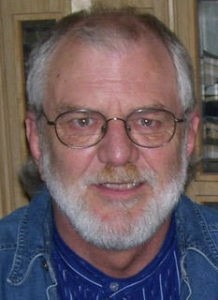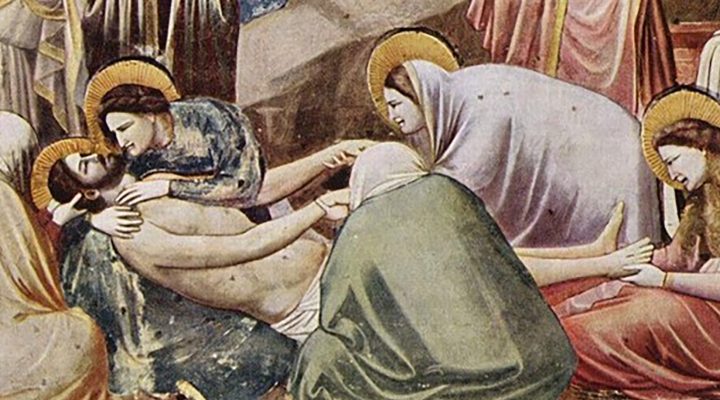Invocation. “Come Ye Disconsolate,” Roberta Flack and Donny Hathaway
§ § § §
Today, in the United States (and selected outposts of our nation’s allies and opponents), there is a gluttony of emotive expression prompted by our nation’s electoral conclusions.
As is sometimes the case, the Latin intonation captures it best: in extremis, “in the farthest reaches” or even “at the point of death.”
More than a few of us are vicariously experiencing the latter. Although more than a few of us, including me, will not endure the ramifications of this election in literal terms. (Hey! My retirement income jumped exponentially at the news from last night. Wall Street is happy … and, yes, I, too, would prefer a longer period of solvency.)

Ken Sehested
But we know people whose future hangs in the balance, who are now exposed to escalating threat.
What, then, to do? Or as Cole Arthur Riley wrote on her “Black Liturgies” site, what can one do “in a country that kneels on our throats daily and makes no apologies?”
She writes, “I’m seeing an overwhelming amount of ‘Well, let’s get to work’ attempts to rally and encourage. Maybe there are some of us who need the urgency of a mission in order to survive. I’m trying to honor that. But some of us are a different kind of exhausted. I keep thinking, do we even get a day? Just because you’ve braced yourself for the worst doesn’t mean it’s any less terrible when it comes. Whatever you thought might come, today is for grief. For sadness, anger. Today is not for shallow platitudes and sentimental pep talks. Nor is it the time to immediately demand more work from Black women and those who have given their bodies and time to attempt to redirect the ship to shore.”
I’m recalling the muse’s disclosure to my own heart some years ago:
Who among you believe that
grieving and lamentation
are symptoms of despair.
Not so!
Only the hopeless are silent
in the face of calamity—
silenced because they no
longer aspire even to be heard,
much less heeded. …
The liturgy of grief transforms the pain of lament into passion
for an outcome forged in justice
and tempered in mercy. Such an
outcome is not ours to impose
by strength of will or accomplished
by force of threat; yet it does demand
of us relentless struggle and steadfast resolve.
So, yes, count me as an objector to the popular activist aphorism articulated by the early 20th-century labor organizer and musician Joe Hill: “Don’t mourn! Organize.”
Just this morning a friend (thanks, Stan) reminded me of a line from a Zora Neale Hurston novel, “They seemed to be staring at the dark, but their eyes were watching God.” The context is the narrative’s key characters taking shelter from the onslaught of a hurricane. In Scripture (and many spiritual traditions), water and wind take on opposing meanings: both threat and assurance. In Genesis’ story of Creation, the wind (breath, ruah, spirit) of God swept over the “formless void and darkness” of the menacing “waters.”
“They seemed to be staring at the dark, but their eyes were watching God.”
The Hebrew slaves fled Egypt’s deathly embrace, driven by the wind (“cloud by day, pillar of fire by night”) through the death-dealing sea, which parted to save them, whose path then collapsed to devour Pharaoh’s enslaving sway.
Righteousness and justice, says the Blessed One, are to flow like the waters, “like a mighty river that never runs dry,” in the words of the Prophet Amos. The baptismal grave into which believers are immersed unfolds in resurrected life in Christian texts. And in the Revelator’s fantastical story, the woman and her newborn are pursued by “the dragon/serpent,” who “poured water like a river to sweep her away with the flood”; but the earth itself “opened its mouth and swallowed the river.”
We are immersed in that threat, and before we can calculate our next moves we first require clarification: whether the ground on which we stand, the calling by which we have claimed, the future to which we stretch which is beyond most available evidence, is sturdy enough to bear the weight of our risky convictions, stouthearted enough to forestall our own palpitations, buoyant enough to venture into Leviathan’s depths, sufficiently tenacious and persevering to not be “confused by the roaring of the sea” or “faint from fear and foreboding” in the face of history’s dangerous rift.
The doorway into asking if there are sufficient grounds on which to stand — sturdy? stouthearted? buoyant? tenacious and persevering? — entails our willingness to lament and grieve, to mount an indictment against heaven’s seeming desertion from earth’s destiny. Or, as Jeremiah demanded to know, “Is there no balm in Gilead?”
“Our capacity to grieve and lament is related to our capacity to hope.”
I dare say our capacity to grieve and lament is related to our capacity to hope, much like the circumference of a tree’s canopy is proportionate to its root system. Otherwise, hope is mere sentiment which, like morning mist, quickly dissipates with the sun’s rise.
Years ago, I participated in a retreat for peace and justice activists led by theologian/activist/historian Vincent Harding. He began the first session by playing the Roberta Flack and Donnie Hathaway rendition of the old hymn, “Come Ye Disconsolate.” And he asked us, “Where do you put your disconsolation?”
There was a collective sigh in the room. And we all sensed we needed to be interrogated by that question before engaging in further analysis and strategic thinking.
In extremis, in the farthest reaches, including mortal prospects.
So, too, do we.
§ § § §
Benediction. “There Is a Balm in Gilead,” The Adventist Vocal Ensemble
Ken Sehested is the author and editor of prayerandpolitiks.org, an online journal at the intersection of spiritual formation and prophetic action.


